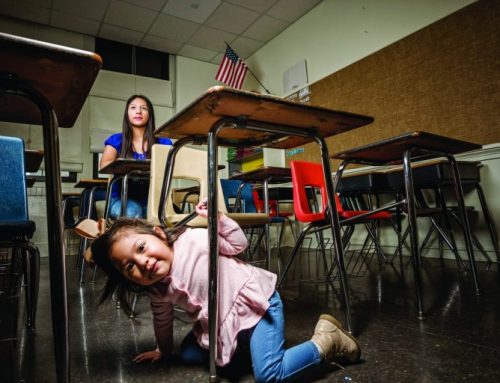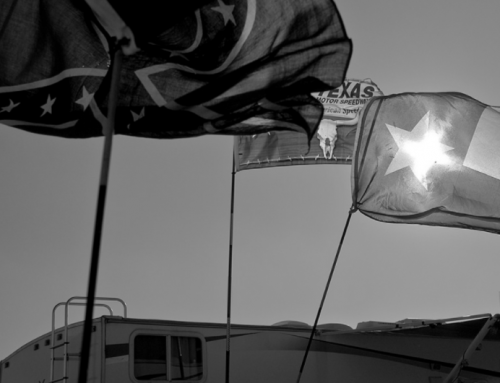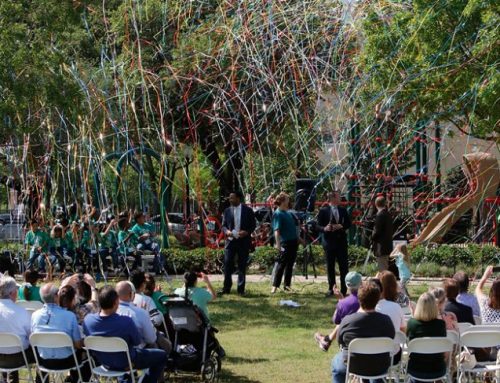The Dallas ISD board recently voted not to ask property-owning taxpayers for more money in the November election, and wealthy people all over Dallas were pissed.
Wait, what?
When it comes to school politics in Dallas, “it’s complicated” may be an understatement. There were actually three votes on three different tax hikes, which would have given DISD an extra $123.2 million, $72.1 million and $42.5 million, respectively, to spend on its 158,000 students. All three failed.
Here’s a breakdown of what happened:
What the heck is a TRE?
A tax-ratification election allows school boards to ask voters for a tax hike beyond the state-imposed cap. The backstory is that the Republican-controlled House and Senate haven’t been inclined to give Texas schools any more funding for more than a decade, forcing local school districts to either make cuts or ask for more money from their own property owners. (All funds for local school districts come from property taxes; Texas doesn’t have an income tax.)
DISD Board President Dan Micciche, who supports taking a TRE to voters, has pointed out repeatedly that “600 other school boards in Texas (virtually all of them with a unanimous vote)” have done just that.
A board needs a supermajority to to take a TRE to voters. The Dallas school board has nine members, so a TRE needs six yes votes.
TRE roll call
The Dallas board first considered a TRE in summer 2016. The pro-TRE camp thought they had the votes but were wrong.
The dividing line between northern and southern Dallas, which has been a racial and, therefore, economic and political divide for much of Dallas’ history, typically separates board members. Controversial votes often split between the southern trustees — Lew Blackburn, Joyce Foreman, Bernadette Nutall and Audrey Pinkerton — and the northern trustees — Micciche, Edwin Flores, Dustin Marshall and Miguel Solis — with southeastern Trustee Jaime Resendez often voting with the northern bloc.
That split proved true for the TRE vote, too, both last year, when Blackburn shared a byline on a Dallas Morning News column supporting the TRE, then voted against it the next week; and also this year when, after a year of discussions and a new PAC to support a TRE, the three votes went down this way:
2 cents: 3-5, southern-Pinkerton (who was absent) vs. northern+Resendez
6 cents: 5-3, northern+Resendez vs. southern-Pinkerton
13 cents: 4-4, northern+Resendez-Flores vs. southern-Pinkerton
The northern trustees argued that they wanted to tax their wealthy constituents to give money to campuses where the southern trustees live, and the southern trustees argued that they didn’t want to burden the city’s poorest residents when cutting the fat from DISD’s central office would yield similar funds. The tax increase was expected to be roughly $9 a month for the average Dallas household and $2 to $3 a month in the poorest parts of the city.

Dallas ISD board docs
And finger-pointing begins …
The split votes yielded a united front among Dallas’ media opinion writers, among them:
• a Dallas Morning News editorial calling for southern trustees’ removal after they voted against “the possibility of millions of dollars going directly into programming for students swamped by poverty”;
• a scathing piece from Observer columnist Jim Schutze who says poor minority children were “shafted by a callous black Southern Dallas leadership that cares more about preserving its good-old-boy political patronage system”;
• a personal essay from Bethany Erickson, who funneled her sadness over the votes into campaigns to fund teachers’ wish lists;
• a Twitterstorm from D Magazine columnist Eric Celeste, who predicted that the TRE votes would decide trustees’ legacies.
Weird. I thought talking about helping black kids in DISD was on point. https://t.co/YUQqDYcvQy
— Eric Celeste (@EricCeleste) August 19, 2017
As for the trustees themselves, essentially, the 2-centers blamed the 6- and 13-centers, and vice versa, except that the 13-centers didn’t call out 6-cent Flores, who voted against the 13-cent hike this year but in favor of it last year.
.02 TRE failed that would have raised 42 million voted down by Marshall, Solis and Flores.
— Joyce Foreman (@joyceforeman16) August 19, 2017
Pinkerton also received a tongue lashing from the 13-cent camp for being on vacation, even though she made clear that she would have been in the 2-cent camp if present. (Flores, who was also on vacation, attended and voted virtually.)
DMN columnist Robert Wilonsky used an old Thomas Jefferson High School yearbook photo of he and Pinkerton, after being voted “most dependable” in their 1986 senior class, to “remind my former classmate that she used to be someone DISD students could count on.”
Where was Audrey Pinkerton last night, you ask? She was in Yellowstone, without phone service, to watch the eclipse.
— Eric Celeste (@EricCeleste) August 19, 2017
@EricCeleste @corbettsmithDMN To be fair, the eclipse was scheduled long before the board meeting.
— PaulSims (@PaulSims) August 19, 2017
In the end, the nays had it — Dallas ISD will have no extra funding from the state nor the possibility of more funding from local voters to spend this school year.








Leave A Comment